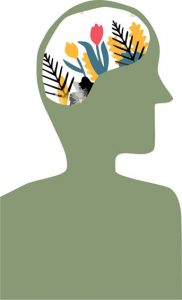Just as the people of any other nation in the world, Palestinians suffer from mental disorders and emotional difficulties that require professional intervention. Yet, these afflictions constitute some of the most significant and least acknowledged health problems in the occupied Palestinian territory. While national statistics show a continuous rise in the percentage of mental health disorders within the community, adequate services in the field are among the most under-resourced areas of health provision.
The most widespread illnesses treated by mental health services include anxiety, depression, and other disorders on the affective spectrum. In fact, the occupied Palestinian territory has the highest number of victims of depression and trauma-related diagnoses in the Eastern Mediterranean. Such high percentages must be looked at through a critical lens and with the awareness that the Palestinian population lives under Israeli occupation, where Israel controls 77.94 percent of historical Palestine. Nearly 44 percent of Palestinians are refugees, and the unemployment rate is 27 percent.
Nowadays, numerous Israeli measures are taken to control the land and the people, including the confiscation of Palestinian lands for the construction of Israeli settlements and bypass roads. Additional measures include restrictions on mobility, the construction of an apartheid wall, and the demolition of homes (with more than 82 percent of Palestinians receiving orders to demolish their own homes). A survey conducted by the United Nations Office for the Coordination of Humanitarian Affairs (OCHA) in the northern West Bank found that 72 percent of Palestinians had experienced regular verbal abuse and humiliation by Israeli soldiers at checkpoints. In a context where around 700,000 Palestinian have been arrested or detained in Israeli prisons or detention centers since 1967, and where a continuous blockade has been imposed on Gaza, with regular bombings and shootings, forcing the nation to deal with three wars in less than ten years, the question of an abnormal situation or a sick environment that augments mental illness comes as no surprise. Palestinians are reacting normally to an abnormal situation, which means that their suffering is legitimate – and we can claim that their context is sicker than they are.
The occupation goes beyond the infliction of successive and cumulative injuries to individuals and aims to destroy social structures, relationships, and institutions. Research shows that the forms of political violence experienced directly influence the collective health and well-being of populations and goes beyond the loss of life and destruction of infrastructures. As a result of these wounds we see overwhelmed and confused parents and caretakers, limited opportunities for social solidarity, broken subgroups of society, a population that has been incapacitated and rendered irresponsible, a learned helplessness, the internalization of passive, submissive roles, the inability to engage in long-term planning, a tendency towards impulsivity, an inability to contain oneself and others, and somatization.
So when trying to understand and develop the trauma profile of the Palestinian population, it is critical that the international mental health community take into consideration the long-lasting negative effects of more than 70 years of ongoing Israeli military occupation on Palestinians as individuals and as a nation.
Yoa’d Ghanadry-Hakim, a clinical psychologist and certified supervisor, is the head therapist at the Palestinian Counseling Center in Beit Hanina and head of the Arab Union of Psychologists. She is also a psychosocial and human rights activist.



